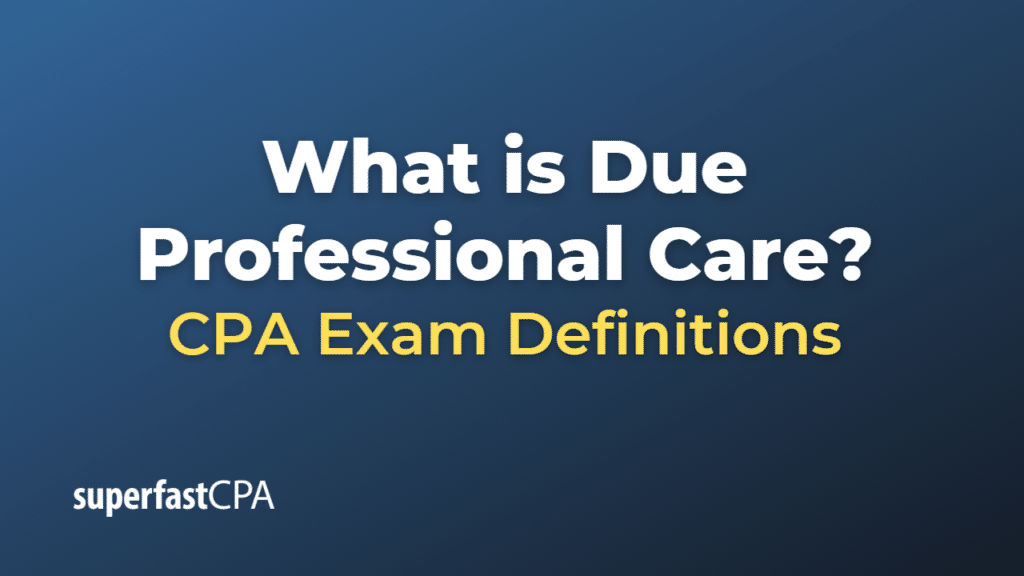Due Professional Care
“Due professional care” is a principle that guides professionals, such as accountants and auditors, to carry out their duties with competence, diligence, and a proper understanding of the technical standards and ethical responsibilities involved.
In the context of auditing, due professional care means the auditor should:
- Conduct the examination and preparation of the audit report with the appropriate level of professional skill.
- Exercise reasonable care and professional skepticism, including critically assessing audit evidence and being alert to evidence that contradicts or brings into question the reliability of audit documentation or management representations.
- Act diligently in accordance with applicable technical and professional standards when providing audit services.
Due professional care helps ensure the quality of the audit and the reliability of the financial statements, which is essential for maintaining public confidence in the financial reporting process. Violating the principle of due professional care can result in legal consequences for auditors and damage to their professional reputations.
This principle is not only applied in auditing or accounting but also in various other professions where individuals are expected to demonstrate a high level of expertise, attention, and responsibility in performing their duties.
Example of Due Professional Care
Let’s consider an example in the auditing context:
Suppose an auditor is conducting an audit of a company’s financial statements. As part of this audit, they come across an accounting transaction that seems unusual – let’s say, a large sale recorded right at the end of the fiscal year. It’s not immediately clear whether the transaction is legitimate or whether it’s been improperly recorded to inflate the company’s annual revenue.
Applying the principle of due professional care, the auditor takes the following steps:
- Professional skepticism: The auditor does not simply accept the transaction at face value. Instead, they maintain an attitude of professional skepticism, recognizing that the unusual timing of the transaction could be a sign of fraudulent reporting.
- Competence: The auditor uses their professional knowledge and experience to evaluate the transaction. They review the documentation for the sale, consider the company’s past revenue recognition practices, and check whether the transaction complies with relevant accounting standards.
- Diligence: The auditor doesn’t ignore the issue or rush through their review. They diligently investigate until they have enough information to make an informed judgment. This might involve discussing the transaction with management, consulting with other members of the audit team, or even bringing in a specialist to provide additional insight.
- Following professional standards: The auditor adheres to the auditing standards that dictate how they should respond to potential signs of fraud, including escalating the issue within the audit firm or reporting it to the appropriate individuals or bodies if necessary.
By applying due professional care in this manner, the auditor helps ensure that their audit is thorough, accurate, and reliable, and that it provides the necessary assurance over the company’s financial reporting.













